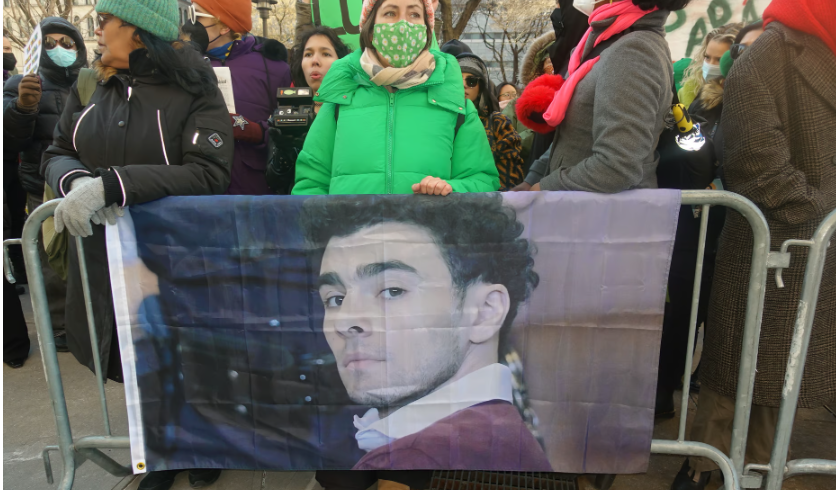Springtime sneezes; Change in season stirs seasonal allergies
April 22, 2021
Spring has sprung. With it trees and plants are blooming which causes pollen to fill the air. Springtime seasonal allergies start to rise with the change of season and weather.
WebMD explains the cause of pollen is from trees, flowers and weeds release the small grains of pollen into the air to fertilize other plants. When the tiny grains enter someone’s nose, the body’s defense berserk.
This causes the immune system to see pollen as a danger and release antibodies to try and fight the grains off. With that histamines, the compound that’s released for inflammatory and allergic reactions, discharged into the bloodstream causing a runny nose, itchy and watery eyes and sneezing.
Spanish teacher Jean Buttitta suffers from itchy eyes and a stuffy nose during the spring. Junior Eric Huffman says his allergies “make [his] nose run and [he] coughs.” Other side effects could be body aches, which sophomore Jarek Joseph deals with.
WebMD list several types of trees, weeds and grasses that can be triggers for those with seasonal allergies. A few trees are cedar, elm, maple, oak, pine and willow. Some grasses and weeds are fescue, orchard, and saltgrass.
“Pollen counts tend to be particularly high on breezy days when the wind picks up these sneeze-inducing grains and carries them through the air.” explains WebMD. On the contrary, rainy days wash away allergens causing the opposite effect as windy days.
There are possible solutions to the springtime sneezes, WebMD describes several of those solutions. Contacting your doctor is the first thing they suggest. Doctors do skin tests, where they rub or inject allergens in/onto the skin to see if it causes a hive to form. Blood tests can also be taken.
Antihistamines help “reduce sneezing, sniffling, and itching by lowering the number of histamines in the body.” (WebMD) A few of those antihistamine medications Clarinex, Xyzal, Zyrtec, Allegra, Benadryl and azelastine eyedrops called Optivar.
Sophomore Logan Chapmen, Joseph, and Huffman all take over-the-counter antihistamines to help their allergies. They take Claritin, Zyrtec, and Benadryl.
“Decongestants shrink the blood vessels in the nasal passageways to relieve congestion and swelling.” (WebMD) and decongestants/antihistamines combos combine to do both. There are nasal sprays to help with congestion. Eyedrops help with itchy and watery eyes.
WebMD offers a few tips to those who struggle with allergies. Stay indoors when pollen count is high, it can be checked on weather apps the level pollen is at that day. Keep windows and doors closed during spring to keep pollen out of the house, air purifiers also help keep the air clean.
Chapman says “a nice glass of orange juice helps.” WebMD continues, clean places where pollen can collect such as bookshelves, cabinets, counters, etc. Wash hair after being outside, the allergens can collect there too.
















